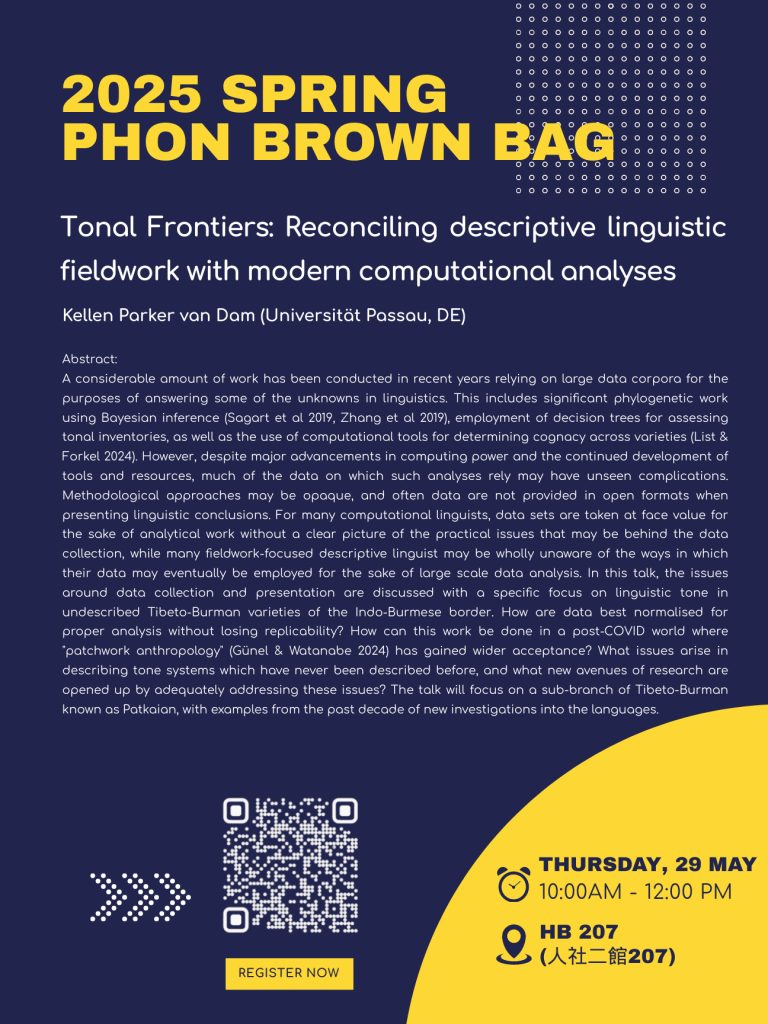Dear friends and colleagues,
We are pleased to invite you to the upcoming talk of the NYCU Phon Brown Bag Series:
“Tonal Frontiers: Reconciling descriptive linguistic fieldwork with modern computational analyses”
Abstract: A considerable amount of work has been conducted in recent years relying on large data corpora for the purposes of answering some of the unknowns in linguistics. This includes significant phylogenetic work using Bayesian inference (Sagart et al 2019, Zhang et al 2019), employment of decision trees for assessing tonal inventories, as well as the use of computational tools for determining cognacy across varieties (List & Forkel 2024). However, despite major advancements in computing power and the continued development of tools and resources, much of the data on which such analyses rely may have unseen complications. Methodological approaches may be opaque, and often data are not provided in open formats when presenting linguistic conclusions. For many computational linguists, data sets are taken at face value for the sake of analytical work without a clear picture of the practical issues that may be behind the data collection, while many fieldwork-focused descriptive linguist may be wholly unaware of the ways in which their data may eventually be employed for the sake of large scale data analysis. In this talk, the issues around data collection and presentation are discussed with a specific focus on linguistic tone in undescribed Tibeto-Burman varieties of the Indo-Burmese border. How are data best normalised for proper analysis without losing replicability? How can this work be done in a post-COVID world where “patchwork anthropology” (Günel & Watanabe 2024) has gained wider acceptance? What issues arise in describing tone systems which have never been described before, and what new avenues of research are opened up by adequately addressing these issues? The talk will focus on a sub-branch of Tibeto-Burman known as Patkaian, with examples from the past decade of new investigations into the languages.

